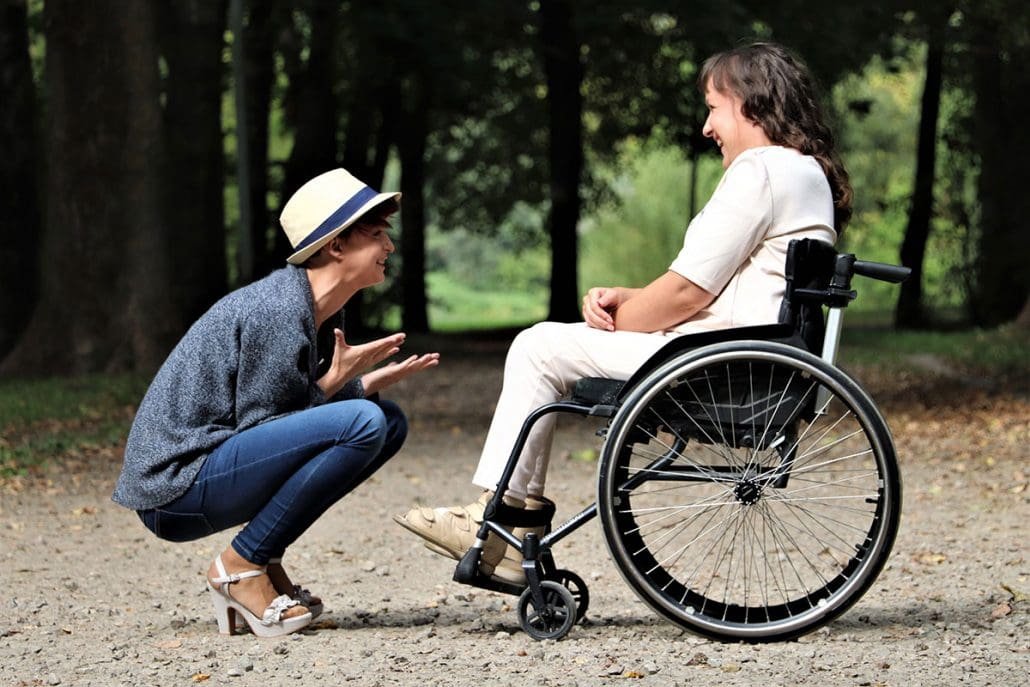Disability services play a vital role in making daily life more manageable and enjoyable for people with disabilities. By offering travel transport services and personal assistance, these services empower individuals to live independently and confidently. Here, we explore various aspects of disability services, focusing on accessibility, personal care, and the broader impact on society.
Understanding Disability Services
Disability services encompass a wide range of support systems designed to aid individuals with disabilities. They aim to enhance the quality of life by providing necessary assistance in various aspects of daily living. These services can include personal care, transportation, education, employment support, and more. The ultimate goal is to foster independence and inclusivity, allowing people with disabilities to participate fully in society. By offering tailored support, disability services help bridge the gap between challenges and opportunities, promoting equality and accessibility for all.
Travel Transport Services: Breaking Barriers
Travel transport services for people with disabilities are crucial for ensuring mobility and accessibility. These services break down barriers by providing safe and reliable transportation options tailored to the needs of individuals with disabilities. Whether it’s a ride to a doctor’s appointment or a trip to the grocery store, accessible transport enables independence and enhances quality of life. Equipped with specially designed vehicles and trained staff, these services ensure comfort and safety. By reducing dependency on others, travel transport services empower individuals to pursue education, employment, and social activities.
Personal Assistance: Enhancing Daily Living
Personal assistance services are essential for individuals who need help with daily activities. Trained staff provide support in various tasks, including cleaning, dressing, medication management, and personal hygiene. This assistance allows individuals to maintain dignity and independence while ensuring their health and well-being. Personal assistance services are tailored to meet the unique needs of each individual, promoting a sense of autonomy and confidence. By fostering an environment of support and understanding, these services enable people with disabilities to lead fulfilling and active lives.
Encouraging Growth and Independence
One of the primary objectives of disability services is to encourage growth and independence. By providing necessary support and resources, these services empower individuals to pursue personal goals and aspirations. Whether it’s learning new skills, seeking employment, or engaging in social activities, disability services create opportunities for personal development. Encouragement and motivation from trained staff and caregivers play a crucial role in building confidence and resilience. Through continuous support and guidance, individuals with disabilities can overcome challenges and achieve a sense of independence and self-worth.
The Role of Trained Staff in Disability Services
Trained staff are the backbone of disability services, providing essential care and support to individuals with disabilities. They are equipped with the skills and knowledge to address various needs, ensuring the well-being and safety of those they assist. The role of trained staff goes beyond providing physical assistance; they also offer emotional support, encouragement, and companionship. By fostering trust and understanding, they build strong relationships with individuals and their families. Continuous training and education ensure that staff can adapt to evolving needs and provide the highest standard of care.
Accessible Transportation: A Key to Social Inclusion
Accessible transportation is a fundamental component of social inclusion for individuals with disabilities. By offering reliable and safe transport options, disability services enable participation in community activities, employment, and education. Accessible transportation promotes independence and reduces isolation, allowing individuals to connect with their communities and pursue personal interests. It also fosters equality by ensuring that people with disabilities have the same opportunities to engage in society as others. By prioritizing accessibility, these services create a more inclusive and equitable environment for all.
Promoting Health and Well-being
Disability services play a vital role in promoting the health and well-being of individuals with disabilities. By providing personalized care and support, these services address physical, emotional, and social needs. Access to healthcare, medication management, and personal hygiene assistance ensures that individuals maintain optimal health. Additionally, encouraging physical activity and social engagement contributes to overall well-being. By creating a supportive and nurturing environment, disability services enhance quality of life and empower individuals to live healthy and fulfilling lives.
Building Community Connections
Disability services facilitate the building of strong community connections for individuals with disabilities. By promoting social inclusion and participation, these services help individuals form meaningful relationships and engage in community activities. Whether it’s joining a club, attending events, or volunteering, disability services create opportunities for social interaction and engagement. Building community connections fosters a sense of belonging and reduces feelings of isolation and loneliness. Through inclusive practices and support, disability services help create a more connected and compassionate society.
Overcoming Challenges: Success Stories
Many individuals with disabilities have overcome challenges and achieved success with the help of disability services. These stories of resilience and determination inspire others and highlight the positive impact of support and encouragement. Whether it’s pursuing higher education, securing employment, or achieving personal goals, disability services provide the necessary resources and guidance. Success stories demonstrate the potential for growth and empowerment when individuals receive the support they need. By celebrating achievements and milestones, disability services promote a culture of positivity and hope.
The Future of Disability Services
The future of disability services holds great promise as advancements in technology and policy continue to enhance accessibility and inclusivity. Innovations in assistive technology, transportation, and healthcare are transforming the way services are delivered. As society becomes more aware of the needs and rights of individuals with disabilities, there is a growing commitment to creating an inclusive environment. The future of disability services will focus on personalized care, empowerment, and community engagement, ensuring that all individuals have the opportunity to lead independent and fulfilling lives.
Frequently Asked Questions (FAQs)
What types of transportation are available for people with disabilities?
Accessible transportation services include specially designed vehicles with ramps or lifts, public transportation with accessibility features, and personalized transport options tailored to individual needs.
How can personal assistance services benefit individuals with disabilities?
Personal assistance services provide support with daily activities such as cleaning, dressing, medication management, and personal hygiene, allowing individuals to maintain independence and improve their quality of life.
What role does technology play in disability services?
Technology plays a significant role in disability services by providing assistive devices, communication tools, and innovative solutions that enhance accessibility and empower individuals to lead independent lives.
How do disability services promote social inclusion?
Disability services promote social inclusion by providing accessible transportation, encouraging participation in community activities, and fostering opportunities for social interaction and engagement.
What is the future outlook for disability services?
The future of disability services is promising, with advancements in technology and policy focusing on personalized care, accessibility, and community engagement, ensuring an inclusive environment for all individuals.
Through dedicated support and innovative solutions, disability services are transforming lives and creating a more inclusive society. By prioritizing accessibility and empowerment, these services are paving the way for a future where individuals with disabilities can thrive and achieve their fullest potential.




